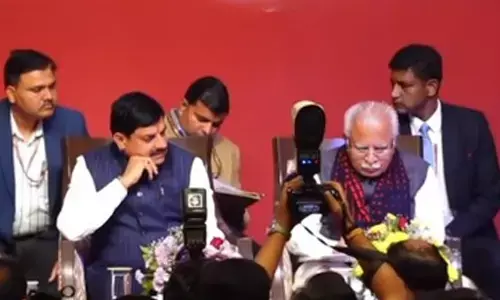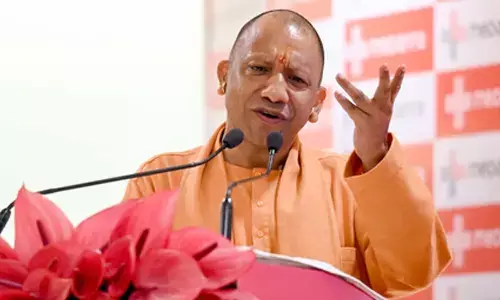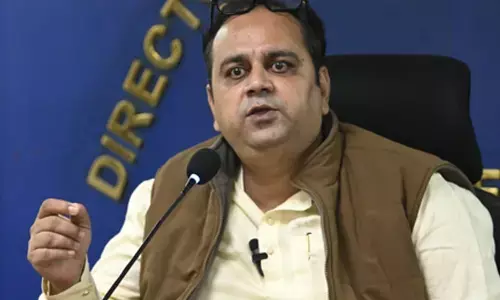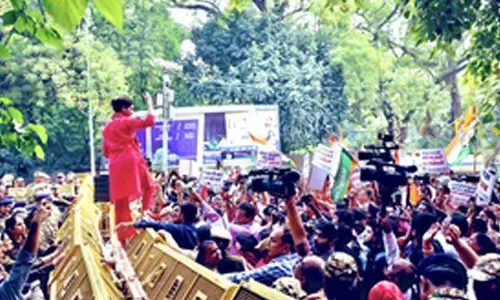Karnataka CM makes situations complex due to failure of budget for the middle-class

After the JDSCongress coalition came to power in Karnataka, the loan waiver promise of the Janata Dal has been the cynosure The principal calculation of the Chief Minister in restoring the Finance portfolio and not conceding it to his alliance partner, was to ensure the gaining of the maximum political mileage from the loan waiver decision
After the JDS-Congress coalition came to power in Karnataka, the loan waiver promise of the Janata Dal has been the cynosure. The principal calculation of the Chief Minister in restoring the Finance portfolio and not conceding it to his alliance partner, was to ensure the gaining of the maximum political mileage from the loan waiver decision. His insistence on a full fledged budget was clearly to make the needed fiscal space for fulfilling his key election promise. Thus, Kumaraswamy's much publicised budget had as its centerpiece the proposal for loan waivers.
Any budget presented by a government immediately after an election will invariably aim at implementing the election manifesto of the ruling party. The situation in Karnataka this time around was complex. One is not sure as to who won or lost the election. In the budget, the Chief Minister announced that the waiver of crop loans to the tune of Rs 2 lakhs, requiring a budget allotment of Rs 34,000 crores. Arrears on loans for defaulters was also waived, requiring a further fiscal provision of Rs 6500 crores.
The budget speech provides little indication of any tangible effort to address rural/agricultural distress to prevent the challenges of future loans waivers being warranted. The focus clearly is on loan waiver without even a short term planning on tackling the problems faced by the agricultural sector.
Being a proposal of a coalition government, it would also be useful to take into account the emerging rumblings within the Congress regarding the budget proposals. While the Chief Minister has not visibly disturbed the ‘Bhagya schemes’ of the previous Congress government, there are concerns expressed on the spotlight of attention and benefit being on the ‘Old Mysore’ region and the corresponding neglect of Coastal and Northern Karnataka.
For the JDS, a focus on Old Mysore would involve catering to their electoral catchment area. It is surprising that the Congress party, a part of the coalition government did not insist on a fair treatment to Coastal and Northern Karnataka, which are part of its electoral base. The budget, has thus, provided a handy tool to the BJP, to drive home the point that important aspect of the state have been ignored.
However, there is very little positivity in this budget for the middle class and the more affluent sections of society. The tax increase in petrol and diesel and the hike in electricity charges will directly hit these segments while the indirect impact in terms of rise of prices of essential commodities will adversely hit all sections of society.
It is for this reason, that sections among the Congress favour a roll back of the taxes on fuel and the hike in electricity charges. Given a Lok Sabha election next year the coalition needs to ensure that its measures do not have an adverse political fallout.
Attention also needs to be drawn towards the two other dimensions which seem to have escaped the government's attention in the budget. Firstly, streamlining the administration to ensure maximum revenue mobilization does not seem to be getting the attention it deserves.
In the end, a budget is a progressive instrument that should focus on growth and development. One could argue that there budget provides limited indications of the same. While loan waiver is the centerpiece of the budget and would be welcomed in some segments of society, the positive impetus to agricultural growth in particular and providing the momentum for economic development is not found.
One also would need to wait and watch how the government actually implements the different provisions outlined in the budget. While the schemes and waivers may be critical the road map for their implementation is as important. The political fallout of these proposals is clearly connected to the segment of society one is looking at.
















